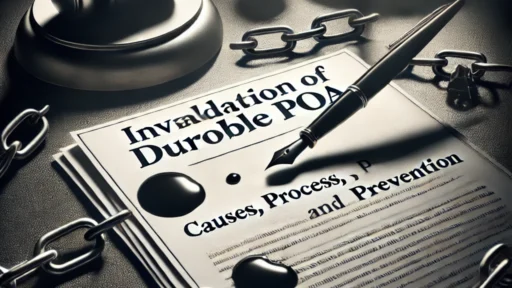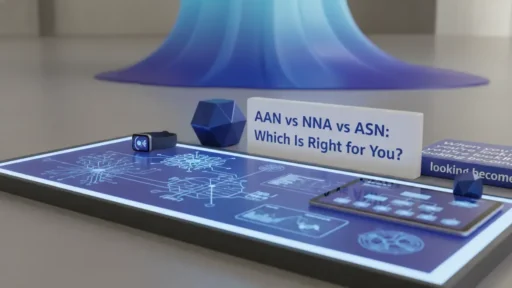Understanding the power of attorney is crucial when planning for the unexpected. This legal document allows someone to act on another’s behalf, making decisions and handling responsibilities when they can’t do so themselves. Whether it’s managing finances, making healthcare choices, or handling legal matters, the power of attorney ensures someone’s interests are protected.
Many people don’t realize how vital this tool can be until it’s too late. It provides peace of mind by designating a trusted individual to step in during challenging times. But what exactly does it empower someone to do, and why is it important? Knowing how it works can help avoid confusion and ensure smooth decision-making when it matters most.
Understanding Power Of Attorney
Power of attorney (POA) is a legal document granting authority to one individual (the agent) to act on behalf of another (the principal). This authority can encompass decisions related to finances, property management, healthcare, and other personal matters, depending on the type of POA.
Types of Power of Attorney
- General Power of Attorney
Enables the agent to handle broad decisions, including signing contracts, managing assets, or handling financial transactions during the principal’s absence or incapacity. - Durable Power of Attorney
Remains effective even if the principal becomes incapacitated. It’s widely used for long-term planning and ensuring decision-making continuity. - Special Power of Attorney
Limits the agent’s authority to specific matters, such as selling a property or managing a particular bank account. - Healthcare Power of Attorney
Allows the agent to make medical decisions on behalf of the principal if they can’t communicate their wishes themselves.
Understanding POA helps individuals delegate decision-making responsibilities effectively, providing clarity and security in difficult circumstances.
Types Of Power Of Attorney
Power of attorney (POA) comes in various types, each designed to address specific situations and needs. These types determine the scope and duration of the agent’s authority.
General Power Of Attorney
A general power of attorney grants broad authority over financial and legal matters. Agents manage tasks such as accessing bank accounts, signing contracts, and handling real estate transactions. This type becomes invalid if the principal becomes incapacitated or revokes it.
Durable Power Of Attorney
A durable power of attorney remains effective even if the principal is incapacitated. Agents continue managing responsibilities like bill payments and investments under this type. It must specifically include durability terms to maintain validity during incapacity.
Limited Power Of Attorney
A limited power of attorney, also called a special power of attorney, authorizes the agent for specific actions. Examples include selling a property, signing a single document, or representing the principal in a legal matter. Its authority ends upon task completion or a predefined expiration date.
Medical Power Of Attorney
A medical power of attorney, also known as a healthcare power of attorney, allows agents to make healthcare decisions for the principal. This type is crucial for situations where the principal is unable to communicate their medical preferences. Agents consider the principal’s wishes and may work with healthcare providers to determine treatments.
What Does Power Of Attorney Do?
Power of Attorney (POA) grants an agent the authority to act on behalf of the principal in specific or broad areas, depending on the document’s scope. It enables efficient decision-making across financial, healthcare, legal, and property-related matters.
Managing Financial Matters
A POA allows an agent to handle financial decisions for the principal. These responsibilities can include tasks like managing bank accounts, paying bills, filing taxes, and overseeing investments. For example, under a Durable Power of Attorney, an agent can continue managing these duties even if the principal becomes incapacitated.
Making Healthcare Decisions
Agents with a Medical Power of Attorney make healthcare decisions when the principal cannot express their preferences. This can involve consenting to medical treatments, selecting healthcare providers, or determining end-of-life care. The agent acts based on the principal’s wishes outlined in the POA or advance directives.
Handling Legal Affairs
Using a POA, the agent can address legal matters on behalf of the principal. This may involve signing contracts, representing the principal in court, or handling disputes. For instance, a Limited Power of Attorney might grant authority to sign a specific legal document or represent the principal in a particular legal transaction.
Overseeing Property Management
An agent can manage the principal’s real estate and personal property under a POA. Tasks like buying, selling, leasing, or maintaining property fall within these responsibilities. A General Power of Attorney could empower the agent to oversee broad property matters, whereas a Limited POA might cover a specific transaction.
When Do You Need A Power Of Attorney?
A power of attorney becomes essential when someone needs another person to act on their behalf. This can occur in temporary situations or as part of long-term planning.
Temporary Circumstances
Certain temporary situations may require assigning a power of attorney. For example, individuals traveling internationally for extended periods may designate an agent to manage financial accounts, pay bills, or address legal issues during their absence. Similarly, military personnel deploying overseas might establish a limited power of attorney to allow someone to handle specific matters, such as managing property or accessing bank accounts, while they’re stationed away from home. Temporary medical incapacity, such as undergoing surgery, may also prompt the need for an agent to ensure decisions are made promptly during recovery.
Long-Term Planning
Long-term planning often involves creating a durable or medical power of attorney. These plans are critical when individuals anticipate future conditions, such as aging, progressive illness, or the potential for cognitive decline. A durable power of attorney ensures someone can manage ongoing responsibilities like retirement income, taxes, or investments if the principal becomes incapacitated. A medical power of attorney is equally important, as it allows the agent to make healthcare decisions aligned with the principal’s preferences in case of severe medical conditions. Establishing these powers in advance safeguards the principal’s interests and prevents costly legal disputes later.
How To Set Up A Power Of Attorney
Setting up a Power of Attorney (POA) involves selecting an agent, preparing the necessary documentation, and meeting legal requirements. Each step ensures the POA operates effectively and aligns with the principal’s intentions.
Choosing The Right Agent
The agent plays a critical role in carrying out the POA’s responsibilities. The principal should choose an agent who is trustworthy, reliable, and capable of handling the designated duties. It’s important to discuss the responsibilities with the prospective agent beforehand to confirm their willingness and understanding of the role. When selecting a durable or medical POA, additional consideration should be given to the agent’s ability to make sound decisions in challenging situations.
Preparing The Documents
Accurate and thorough documentation ensures the POA reflects the principal’s wishes. The POA document must specify the scope of the agent’s authority, whether it’s financial, healthcare, or limited to specific tasks. Forms for creating a POA are commonly available from attorneys, legal aid organizations, or online legal services. The principal should tailor the POA document to their circumstances, outlining the agent’s powers and, if applicable, any limitations or expiration dates.
Ensuring Legal Validity
A POA requires compliance with state-specific laws to be enforceable. Most states mandate the document be signed in the presence of a notary public or witnesses. In some states, additional requirements, like specific language or registration for real estate transactions, may apply. Consulting an attorney can help ensure the POA meets all relevant legal standards. For continuous validity, the durable POA must explicitly state that it remains effective even if the principal becomes incapacitated.
Discover the Power of BlueNotary:
Integrate your Business, Title Company, or Law Firm to Satisfy your Customers and Decrease Turnaround
Get a document Notarized/Sign-up
Join the Free Notary Training Facebook Group
Conclusion
A power of attorney is a vital legal tool that ensures someone you trust can step in and make important decisions when you’re unable to do so. By understanding its purpose and selecting the right type of POA, individuals can protect their interests and maintain control over their financial, healthcare, and legal matters. Taking the time to establish a POA now can prevent unnecessary stress and conflict in the future, offering peace of mind for both the principal and their loved ones.
Frequently Asked Questions
What is a Power of Attorney (POA)?
A Power of Attorney (POA) is a legal document that gives a designated person, called the agent, the authority to make decisions and handle responsibilities on behalf of someone else, referred to as the principal. It is often used for managing financial, healthcare, or legal matters when the principal is unable to act themselves.
Why is having a Power of Attorney important?
A POA ensures that a trusted individual can act on your behalf in crucial situations, such as medical emergencies, incapacity, or extended absences. It provides peace of mind, prevents costly legal issues, and ensures smooth decision-making during difficult times.
What are the different types of Power of Attorney?
- General POA: Broad authority but invalid if the principal is incapacitated.
- Durable POA: Remains valid even if the principal is incapacitated.
- Limited POA: Grants authority for specific tasks or time periods.
- Medical POA: Focuses on healthcare decisions when the principal cannot communicate.
When should I create a Power of Attorney?
You should create a POA for both temporary and long-term situations, like medical incapacity, international travel, military deployment, or aging-related conditions such as cognitive decline. Planning ahead ensures your interests are protected.
Can I revoke a Power of Attorney?
Yes, the principal can revoke a POA anytime, as long as they are mentally competent. Proper legal procedures, like notifying the agent in writing, are required for revocation.
How do I set up a Power of Attorney?
To create a POA, choose a trustworthy agent, prepare appropriate documentation outlining their authority, and ensure it complies with state laws. Notarization or witnesses may be required, so consulting an attorney is highly recommended.







